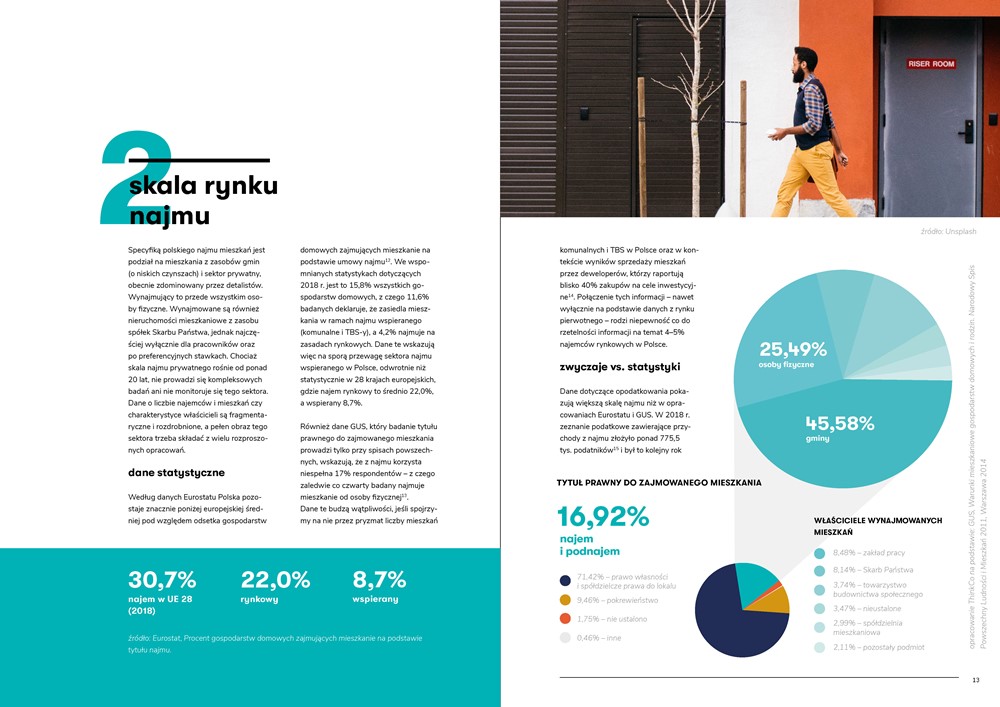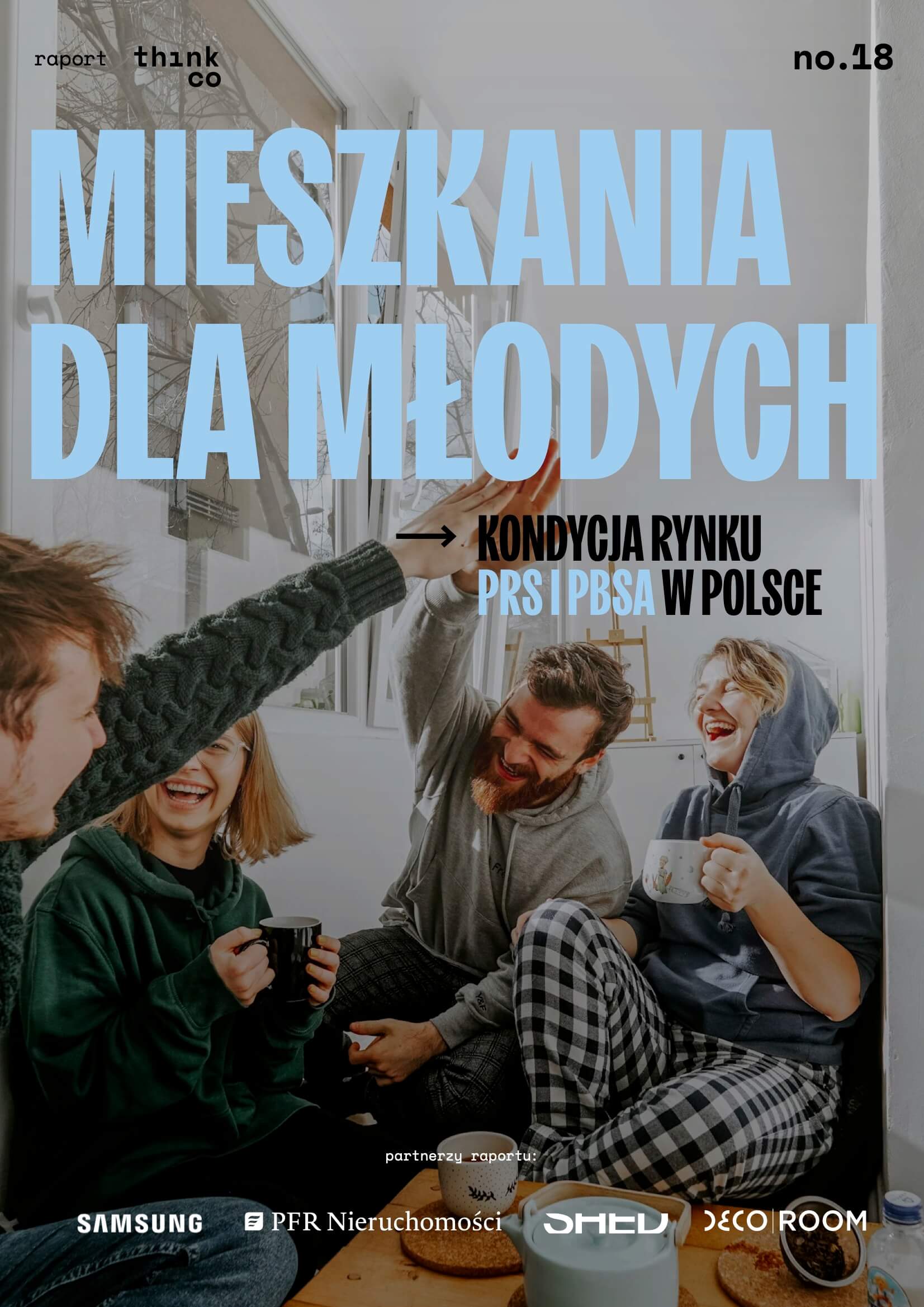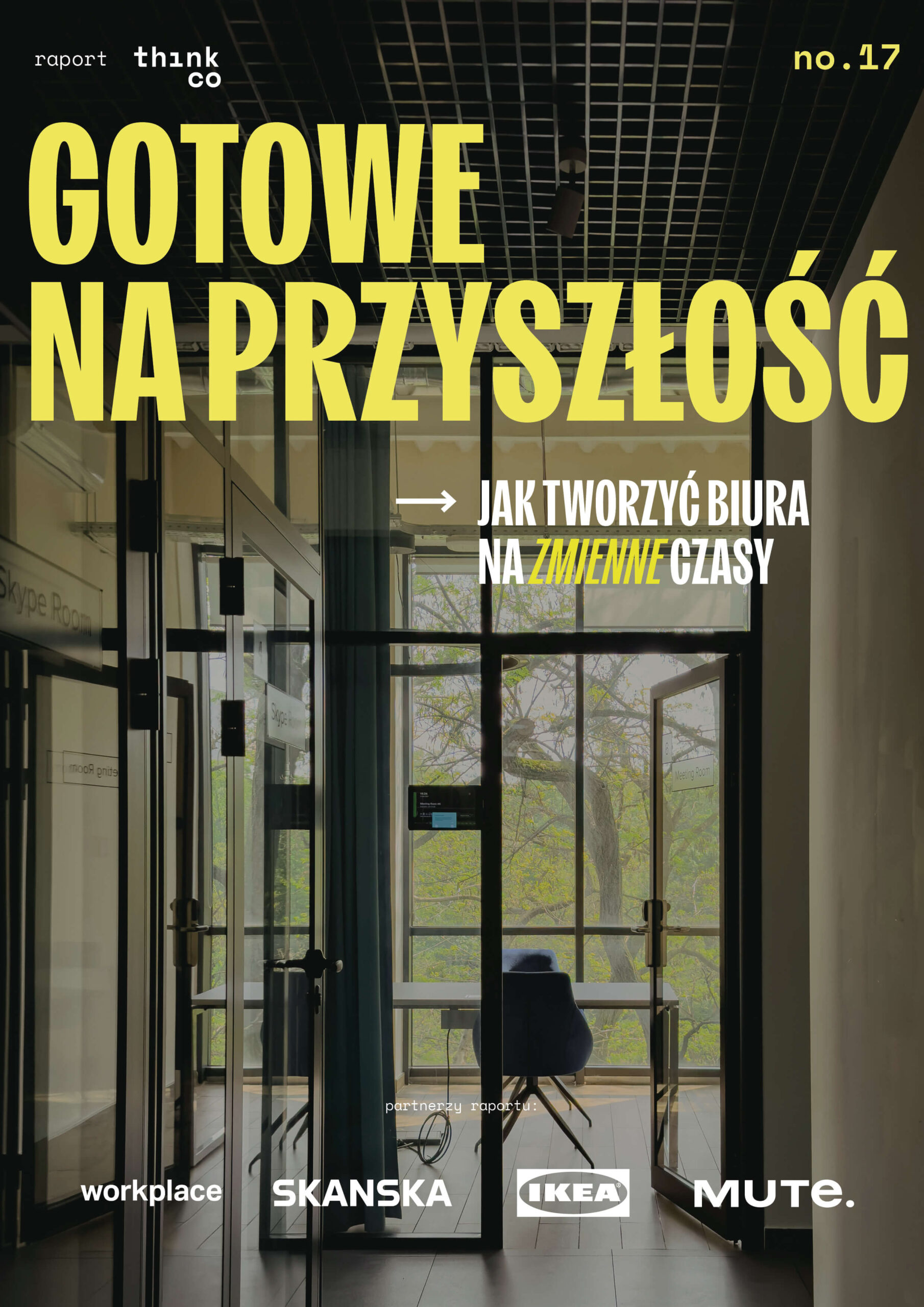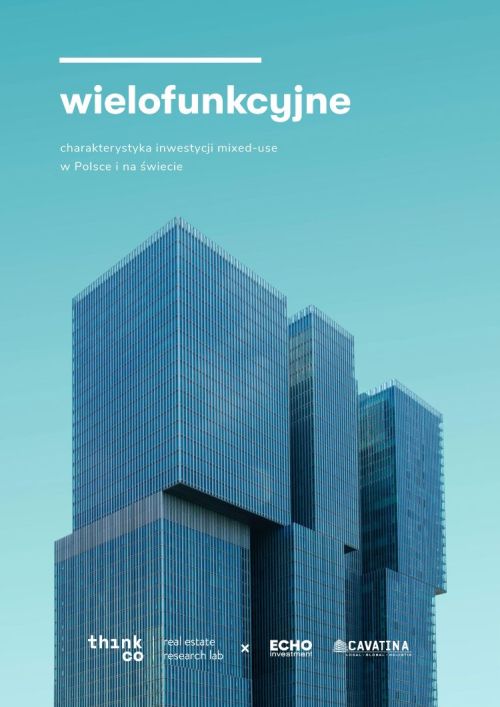For the past 30 years, most Poles have aspired to own an apartment. However, the evolution of both the housing market and social trends means that the growing rental market is attracting more and more attention. Its professionalization has a chance to change our thinking about the housing culture of Poland and influence the strategies of real estate investors.

„Built-to-Rent” provides a comprehensive guide to the complex situation of this segment of real estate market and highlights the factors behind the expected increase in the importance of institutional rental. It describes the shape of the rental of today, explains its origins and presents development prospects.
The publication contains social, economic and legal analyzes that make up the most complete posible picture of the rental market in Poland. It is complemented by examples of investments and practices applied in countries with a high importance of institutional rental. This allows to understand the diverse development opportunities of this market in Poland.
Over 1.2 million aparments for rent
The rental market in Poland can be briefly described as chaotic and unregulated, but also promising. What is also very important – underestimated. We can already estimate the number of units for rent at over 1.2 million nationwide, so more than 8% of the total housing stock. This is much more than the official Eurostat and GUS data. In 2018, over 775.5 thousand tax returns containing rental income were submitted, almost twice as much as five years earlier. It should be noted that this only applies to natural persons and does not provide information on how many apartments they rent. The growing scale of the rental market forces its professionalization and the introduction of appropriate legal regulations. Eurostatu i GUS. W 2018 r. złożono ponad 775,5 tys. zeznań podatkowych zawierających przychody z najmu, niemal dwukrotnie więcej niż pięć lat wcześniej. Zaznaczyć trzeba, że obejmuje to jedynie osoby fizyczne i nie informuje, ile mieszkań wynajmują. Rosnąca skala rynku najmu wymusza jego profesjonalizację i wprowadzenie odpowiednich regulacji prawnych.
Institutional rental market is rapidly growing
By the end of June 2020, over 3,700 units in Built-to-Rent investments were completed. Approved projects will increase this stock by more than 7,000 apartments by 2023. If the current dynamics of market development continues, and thus the announcements of developers and funds are implemented, by 2025 we can expect even 20,000 units offered by institutions. These estimates are based only on entities already participating in the market. Even tens of thousands of premises in the perspective of the next four years are not able to meet the demand for rental apartments in Poland.
Covid-19 and rental market
The Covid-19 pandemic initially caused anxiety in the rental housing market, but nvestors’ announcements alleviated these concerns later in spring. Institutional rental market may emerge stronger from the current crisis due to the attractiveness of rental in the eyes of clients. It provides flexibility and a lower one-time financial burden. Institutions can offer a greater sense of stability than retail rental offered by individuals. When comparing the current situation with the crisis of 2008, we need to remember about the government’s more favorable approach of to the stable rental market.
Inadequate legal regulations
The lack of appropriate legal solutions is a big challenge for Polish institutional rental. Many types of contracts do not protect the interests of the owners sufficiently. This raises concerns about tenants who are in arrears with rent or payment for damage to the premises. The introduction of REITs to the Polish legal system has been delayed for many years. REIT is a system that allows individual investors to invest funds in real estate collectively. There are many more problems to be solved in this area. All of them are holding back the development of rental market in Poland.
In partnership with:
For the past 30 years, most Poles have aspired to own an apartment. However, the evolution of both the housing market and social trends means that the growing rental market is attracting more and more attention. Its professionalization has a chance to change our thinking about the housing culture of Poland and influence the strategies of real estate investors.
„Built-to-Rent” provides a comprehensive guide to the complex situation of this segment of real estate market and highlights the factors behind the expected increase in the importance of institutional rental. It describes the shape of the rental of today, explains its origins and presents development prospects.
The publication contains social, economic and legal analyzes that make up the most complete posible picture of the rental market in Poland. It is complemented by examples of investments and practices applied in countries with a high importance of institutional rental. This allows to understand the diverse development opportunities of this market in Poland.
Over 1.2 million aparments for rent
The rental market in Poland can be briefly described as chaotic and unregulated, but also promising. What is also very important – underestimated. We can already estimate the number of units for rent at over 1.2 million nationwide, so more than 8% of the total housing stock. This is much more than the official Eurostat and GUS data. In 2018, over 775.5 thousand tax returns containing rental income were submitted, almost twice as much as five years earlier. It should be noted that this only applies to natural persons and does not provide information on how many apartments they rent. The growing scale of the rental market forces its professionalization and the introduction of appropriate legal regulations. Eurostatu i GUS. W 2018 r. złożono ponad 775,5 tys. zeznań podatkowych zawierających przychody z najmu, niemal dwukrotnie więcej niż pięć lat wcześniej. Zaznaczyć trzeba, że obejmuje to jedynie osoby fizyczne i nie informuje, ile mieszkań wynajmują. Rosnąca skala rynku najmu wymusza jego profesjonalizację i wprowadzenie odpowiednich regulacji prawnych.
Institutional rental market is rapidly growing
By the end of June 2020, over 3,700 units in Built-to-Rent investments were completed. Approved projects will increase this stock by more than 7,000 apartments by 2023. If the current dynamics of market development continues, and thus the announcements of developers and funds are implemented, by 2025 we can expect even 20,000 units offered by institutions. These estimates are based only on entities already participating in the market. Even tens of thousands of premises in the perspective of the next four years are not able to meet the demand for rental apartments in Poland.
Covid-19 and rental market
The Covid-19 pandemic initially caused anxiety in the rental housing market, but nvestors’ announcements alleviated these concerns later in spring. Institutional rental market may emerge stronger from the current crisis due to the attractiveness of rental in the eyes of clients. It provides flexibility and a lower one-time financial burden. Institutions can offer a greater sense of stability than retail rental offered by individuals. When comparing the current situation with the crisis of 2008, we need to remember about the government’s more favorable approach of to the stable rental market.
Inadequate legal regulations
The lack of appropriate legal solutions is a big challenge for Polish institutional rental. Many types of contracts do not protect the interests of the owners sufficiently. This raises concerns about tenants who are in arrears with rent or payment for damage to the premises. The introduction of REITs to the Polish legal system has been delayed for many years. REIT is a system that allows individual investors to invest funds in real estate collectively. There are many more problems to be solved in this area. All of them are holding back the development of rental market in Poland.
In partnership with:

WORKSHOPS: Built-to-Rent in Poland
During our workshops we focus on the analysis of the development prospects of the rental market in the context of a specific business. The workshop includes:
- Conclusions from the Built-to-Rent report
- Brainstorming on the development prospects of the rental market, in the context of the client’s business,
- For developers: discussion of the client’s assets in the context of Built-to-Rent investments
- For service companies: analysis of the implementation of the service or product in the Built-to-Rent investments
The workshops result in a thorough knowledge of the rental market development prospects and:
- Initial analysis of the location potential for the owned premises in the context of Built-to-Rent investment
- Outline of the service implementation strategy in the context of PRS investment.
WORKSHOPS: Built-to-Rent in Poland
During our workshops we focus on the analysis of the development prospects of the rental market in the context of a specific business. The workshop includes:
- Conclusions from the Built-to-Rent report
- Brainstorming on the development prospects of the rental market, in the context of the client’s business,
- For developers: discussion of the client’s assets in the context of Built-to-Rent investments
- For service companies: analysis of the implementation of the service or product in the Built-to-Rent investments
The workshops result in a thorough knowledge of the rental market development prospects and:
- Initial analysis of the location potential for the owned premises in the context of Built-to-Rent investment
- Outline of the service implementation strategy in the context of PRS investment.

ThinkCo
We are the first advisory company in Poland specializing in new ideas for real estate. We combine the knowledge of researchers and architects with business world experience, creating innovative processes, products, and services for the real estate market.
We focus on interdisciplinarity. Our specialists come from various environments and represent different experiences, constantly expanding the range of our capabilities and knowledge. The role of ThinkCo is to use this knowledge as an opinion maker in the process of implementation of new solutions on the real estate market.






















































